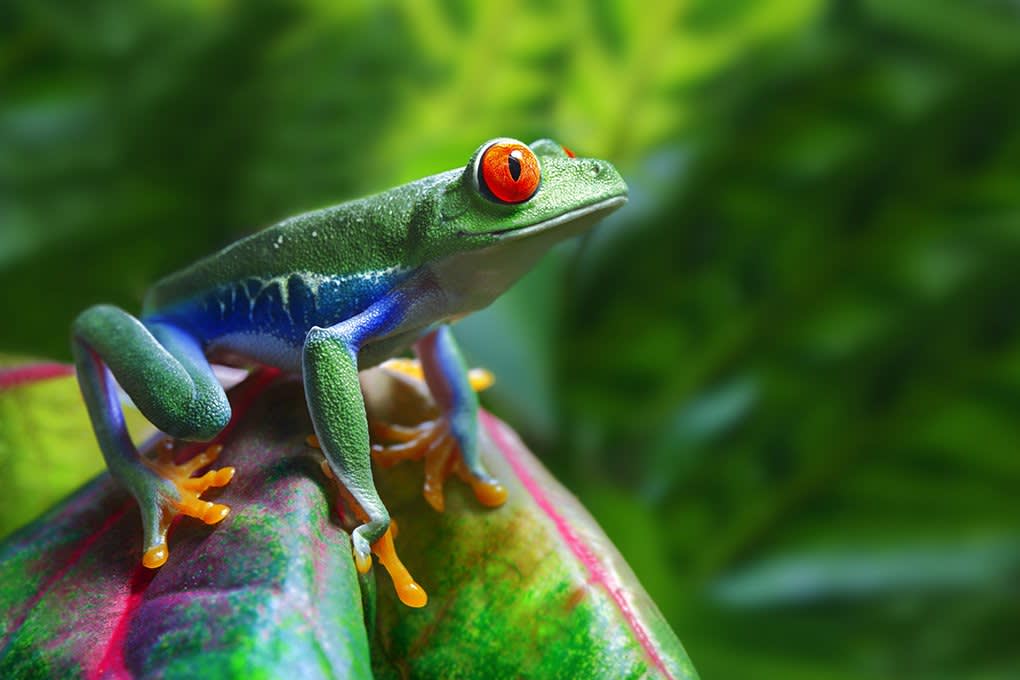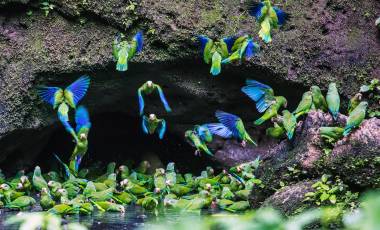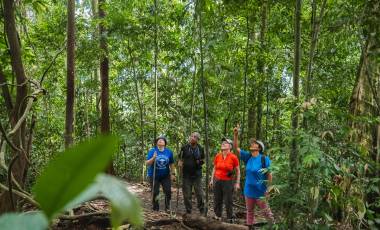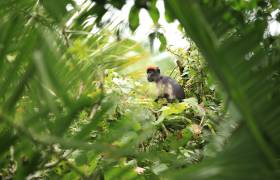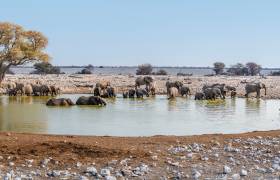Read time – 3 minutes
The sense of anticipation in the office has been hard to bear these past few weeks, but it’s here at last! Welcome to the first of our weekly reviews of the iconic series.
A hot air balloon drifts over a mountainous landscape. Standing in the basket, wrapped in a thick coat, is the legendary Sir David Attenborough. He turns to the camera, smile knowing and voice as familiar and comfortable as an old jumper, and immediately we know what we’re in for with this new series of the BBC classic Planet Earth.
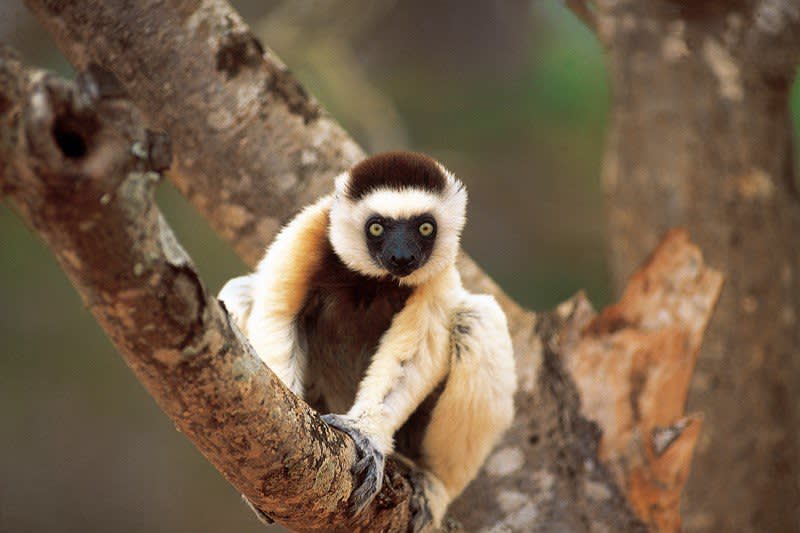 Sifaka Lemur
Sifaka Lemur Or, at least, we think we do. What strikes us as soon as the action starts is not how familiar it all is, but how fresh. The crew clearly haven’t been resting on their laurels; huge technological innovations over the past ten years have given them the ability to get far closer to the animals than ever before.
Islands
Don’t worry – the grandeur is still there in spades, but now it’s counterbalanced by a sense of intimacy and immediacy that surpasses anything we expected. In its first episode, Islands, Planet Earth 2 takes us on an incredible journey across the hugely diverse islands of this planet.
From the bizarre, almost alien wildlife of Madagascar, where lemurs leap between trees with the grace and athleticism of ballerinas, to Christmas Island, where red crabs march en masse towards their breeding grounds whilst under assault from invasive ants, there’s no-one better than the Planet Earth team at bringing us the wonders of the natural world in the comfort of our living rooms.
From the opening sequence, in which a Pygmy sloth struggles its way across its tiny island home in search of a mate, it’s clear that the team have lost none of their knack for crafting stories. We feel every moment of the adorable little guy’s plight, from triumph as he swims awkwardly but determinedly across the water to the disappointment of finding his desires thwarted.
The score from master film composer Hans Zimmer emphasises every moment playfully and gracefully, before turning tense and dramatic.
We cut to monstrous Komodo dragons. Two large males go head to head in an up-close, brutal battle. They approach each other, slavering and growling with terrifying savagery, before launching at each other with powerful jaws and razor-sharp claws. The footage is astonishing, giving us a crystal-clear look at every bite, every swipe, every tail lashing like a whip.
The sound design team has done an exceptional job on this sequence so that every blow feels heavy and deadly and seems to land just behind our screens – it’s some of the most intimate and awe-inspiring fight footage the team have ever put to film.
The episode’s standout segment, the one everyone’s talking about, is a terrifying, tense and thrilling chase in which newborn Marine iguanas on the Galapagos Islands are pursued by hordes of racer snakes. These small yet fearsome creatures seem to act as one, clusters of them jolting upright Medusa-like at the sight of the helpless hatchlings scrambling for the rocks.
They slither out from the rocks, closing in on the iguanas. The camera operators have caught some truly remarkable footage here: the heady highs and gruesome lows of the newborn’s mad dash for the safety, complete with desperate leaps for high ground as the snakes snap at their tails.
The grand finale embodies everything that makes this series great. As we see in the post-episode segment, this is one of the most difficult shoots the crew has ever undertaken, in one of the most inhospitable locations.
We follow a vast colony of Chinstrap penguins, living in isolation on an active volcano surrounded on all sides by raging oceans and towering, jagged cliffs. We see the daily struggles of their lives. Each day, the penguins launch themselves from the clifftops and into the swelling seas. They return bloodied and broken, if at all, and begin the long search for their own family amongst the huge colony.
The sequence balances the sweeping, epic BBC trademark style and the intimate, heart-wrenching footage that new technology has enabled the team to capture. The music swells as the camera pans over the massive colony and the sun sets offshore.
The first episode of the new series signs off with a reminder of what it does best – brings joy and wonder into our lives. Roll on episode 2.
If you’d like to see these incredible species for yourself, take a look at our wildlife trips below.
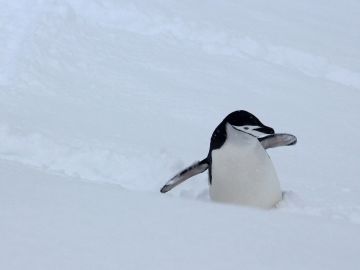
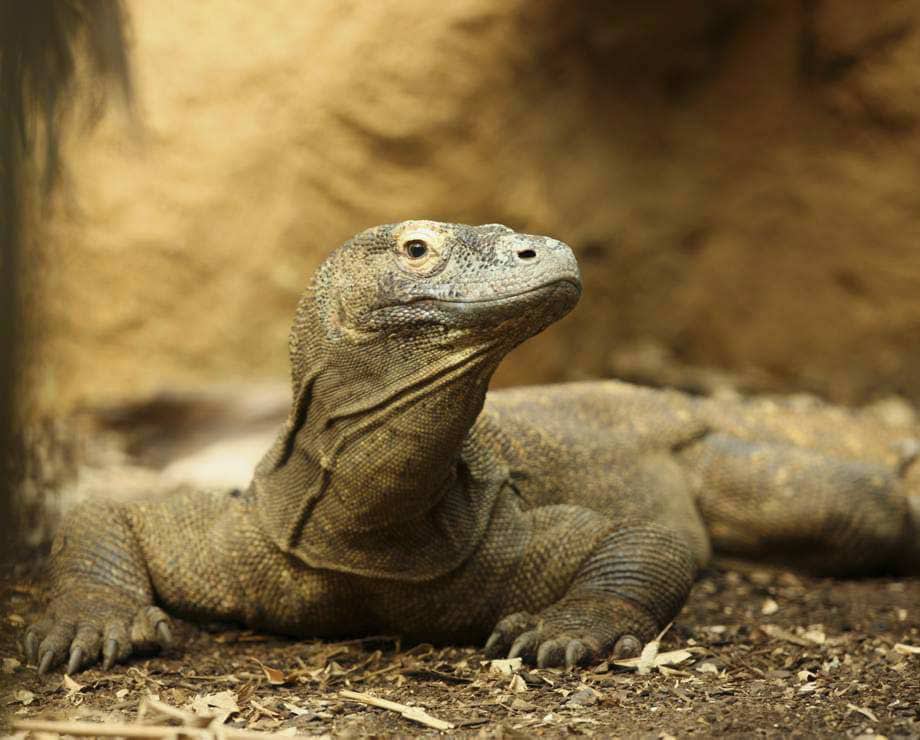 Komodo Dragon
Komodo Dragon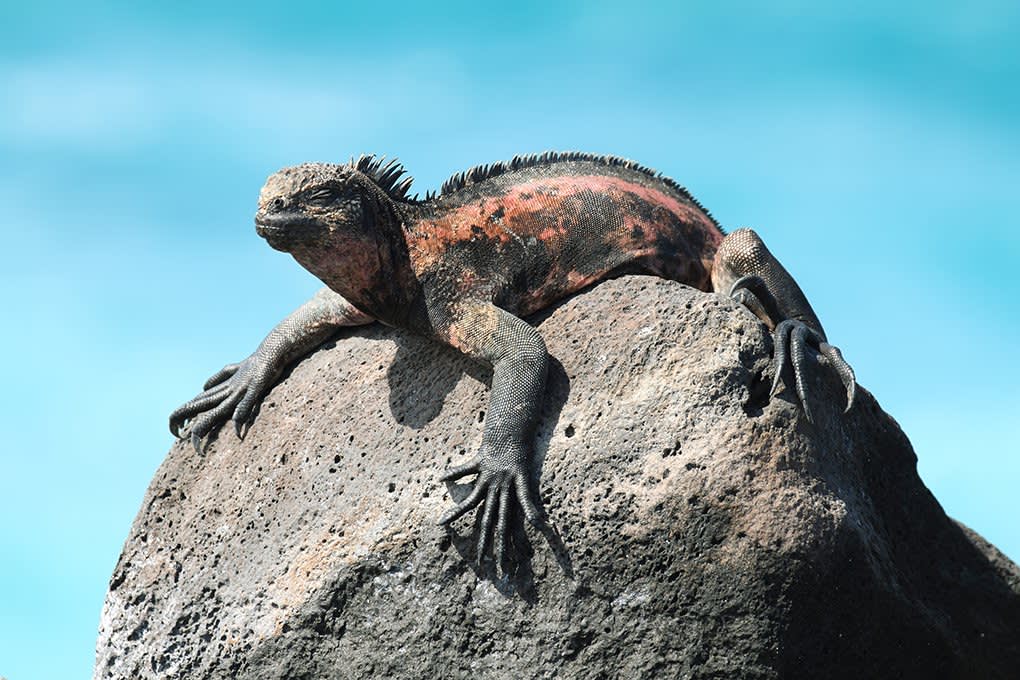
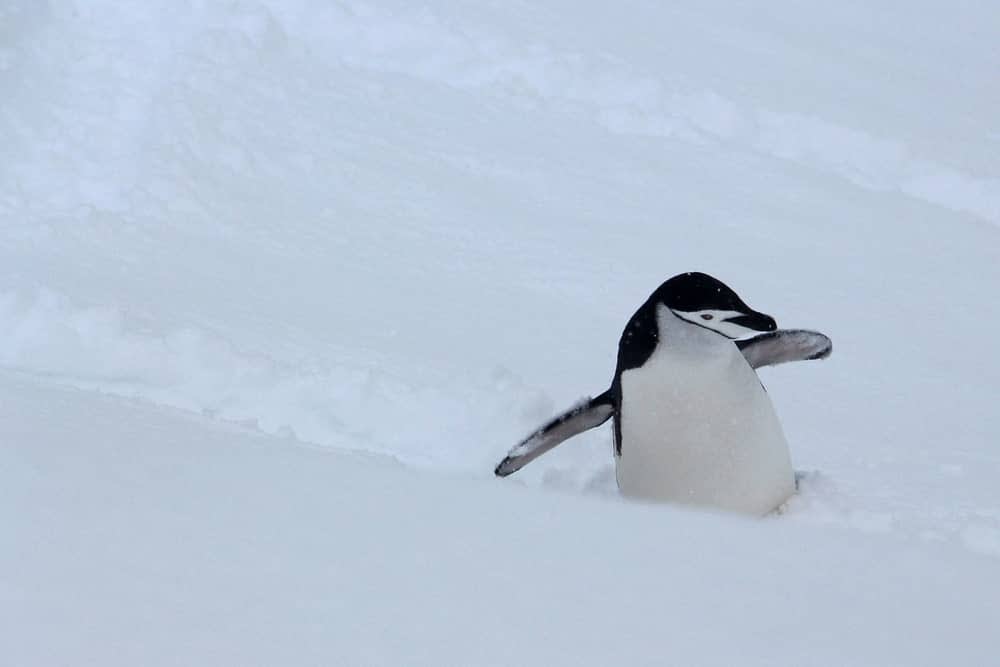 Chinstrap penguin, Antarctica
Chinstrap penguin, Antarctica